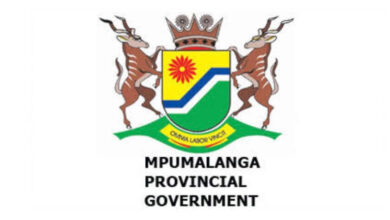African Social Entrepreneurs Network (ASEN) – ‘The challenges of social entrepreneurship’

Today, there is a growing consciousness about ‘social entrepreneurship’, these sustainable organizations driven by social and environmental change, instead of being driven by profit. Sharing opportunities between social entrepreneurs becomes capital to develop this sector and to replicate models which are working efficiently. Jaco Slabbert, marketing manager of the African Social Entrepreneurs Network (ASEN), gives us his vision about social entrepreneurship and the main challenges that it faces in Africa.
Interview conducted in February 2014.

SparkTour Africa: Why the African Social Entrepreneurs Network (ASEN) was created?
Jaco Slabbert, marketing manager of ASEN: The ASEN was created to faster a community of social entrepreneurs, impact changemakers, other impact practitioners, and just generally people that are interested in growing a very healthy social entrepreneurial space. Initially the idea was to create a network where everybody can connect with each other, find support, find resources, tools, knowledge, and also share best practices! Get together, and when necessary help each other out of the struggles… and stay enthusiastic!
What are your main activities today?
Our primary activities are focused on finding opportunities for social entrepreneurs and for our members. It could be training or education opportunities. Secondly we like to faster a community of changemakers together. So, we spend quite a bit of time putting events together, a variety of networking events. Some of them are master classes in particular areas like social replication or ‘tech in change’. I think the major activities are really focused on empowering social entrepreneurs. This happens through our online network, our newsletter, our website, a lot of the media services that we offer. We also operate in a little bit more high level: advocacy and policy work with government on provincial as well as at a national level, and we also work with a lot of academic institutions in order to faster a very healthy social economy. Those activities are not directly involving our members, but they do generally sort of influence the sector and the industry as a whole.
It represents how many members in total?
Today it represents about 3 000 members, probably even closer to 4 000. It is across Africa, mostly South Africa, and then we have the East, West and North Africa.
For you, social enterprise is a sector that is well developed?
It depends how you define ‘well developed’. The sector itself is still very young, there is not really a unified voice to the sector yet, and there are a lot of policy things that need to happen for the sector to mature. But I think what is well developed is people and social entrepreneurs’ understanding of addressing challenges and social problems. Many of them are quite established entrepreneurs themselves. I think in that sense economically it could be quite well developed between individuals, but as a sector, I don’t really think that it is as far as it should be. It is only even going for about officially 10 years, so there are still a lot of things that need to happen. ‘Developed’, yes… ‘Very well developed’, not even almost, really.
‘There is not really a unified voice to the sector yet.’
Do you think that it is really a viable solution to make change happening?
Absolutely… for two very distinct reasons. The first reason is from a financial sustainability and economic point of view. The challenge with the social sector has been founding and capability. Unfortunately a lot of times the people that end up doing good are very good hearts but lack the real skills to create change. In social entrepreneurship you have to make your project work, you have to make your enterprise work; you have to make it sustainable, financially viable… that gives it longevity. It allows you to run for a much longer time that any NGO or non-profit ever could. Social enterprises don’t have to rely so heavily on public funds: they have the opportunity to drive their own income. Fortunately by that means they could increase their own impact without having to rely on donors and so forth.
The other reason why I think it is a very good solution is because social entrepreneurship is about empowerment. It is really about giving people the tools. It is that all mentality of teach a man to fish. As Bill Drayton said (note: founder of Ashoka, www.ashoka.org), we are teaching people to fish, but also at the same time trying to revolution the fishing industry. It also allows people to take ownership of the change that is needed, and I feel that it has a lot more longevity that a hand-out mentality does. I am not saying that all the non-profits have a hand-out mentality, but very few of them really understand solving problems. Most of them just maintain the problem as it is: they try to alleviate poverty, but they don’t really try to solve poverty. The only way that we can solve this problem is through empowerment. We need critical mass, and we need everybody to work together. If we empower everybody, the opportunity is there for all us to change it together.
‘Social entrepreneurship is about empowerment.’
What are the main challenges of social entrepreneurship in South Africa?
I think firstly from the enterprises point of view. There is a lack of business acumen and business skills. Many social entrepreneurs need to learn to be entrepreneurs. I think that is one of the major challenges they face. Then, there is the issue of market. Social enterprises find it very difficult to find markets for their products or services. The problem is that these markets are already very saturated with commercial products. The one great challenge with markets is that the social enterprise markets need to be created. There need to be a way to integrate into existing markets. And obviously there is the funding component! At least in South Africa, and to a great extend Africa, there is a lot of funding. The problem is the majority of the entrepreneurs looking for that funding are not at this stage on their businesses where the funding is accessible. A lot of them are still in a very early idea in pilot stages, and they need money in order to really slightly grow from there. Unfortunately, the founders are not willing to take these risks!
So, I think it is a challenge for the funders as well as for the social entrepreneurs. The entrepreneurs do a lot, but they also need sometimes to just take another extra step or two, closer to the middle-road for the funders. The same is exactly true for the founders. They also need to be able to take a few more risks, and understand that investing in social entrepreneurship is not at all as investing any other business. It is not just about financial metrics, it a much more complete system. What I see often that works is when there is a real mentorship relationship between investors and entrepreneurs. That also allows them to meet each other half way very well. If both investors and the social entrepreneur spend time together and get to know each other, get to know the project, it is succeeding for the same reasons.
‘The social enterprise markets need to be created.’
Who is the most inspiring social entrepreneur in Africa for you?
I can’t pick one that is the most inspiring, simply because they are all very inspiring, for different reasons! I can identify a few that made me looked differently at social entrepreneurship and have given me hope for the success of it.
One of them is a Sizwe Nzima that runs Iyeza Express (https://www.facebook.com/pages/Iyeza-Express/185847594918736). They deliver chronic medication on bicycles in townships. He is a really inspiring individual, because he is unbelievably enthusiastic, but also realistic. That is what I love about him. He is very honest about his capabilities and about what he needs, especially about finding support and help. Social entrepreneurs need to be more honest and more straightforward about the reality of their situation.
Another that is very inspiring is Charles, in Zimbabwe, who runs Death Hands at Work (www.dhwsa.co.za). They employ different disabled, and beyond just employing them, he also does so much for the death community… and I love his catch phrase! He doesn’t call it ‘disability’, his business catch phrases is: ‘from disability to ‘this ability’. That really speaks to the empowerment component.
The last one to mention would be the Greenpop guys (note: Misha Teasdale, co-founder of Greenpop, was interviewed for SparkTour Africa: https://www.facebook.com/notes/sparktour-africa/greenpop-planting-trees-changing-minds/1840154302792180), and specifically because I have been working with them for years, before the actually really success of this enterprise. They were amazing, just simply because they believe so much in their cause and in finding sustainable ways to do and share this beauty with other people, especially with their volunteers. It really helps people to share exactly that enthusiasm and that love for the change that they have.
A last word?
Social entrepreneurs out there and just in general: ‘keep doing what you are doing’! This is the hardest job you will ever have. But keep had it, because this is how we change the world: not by just supporting charities, but about creating change in ways that can maintain itself. So, when we remove ourselves from that mechanism, it can run itself. That is what I am looking for: seeing a lot of social enterprises that are self-sustaining, that are financially viable, and that are also brand names. Maybe we will get there one day, I hope so!
‘Social entrepreneurs out there and just in general: ‘keep doing what you are doing’! This is the hardest job you will ever have.’




